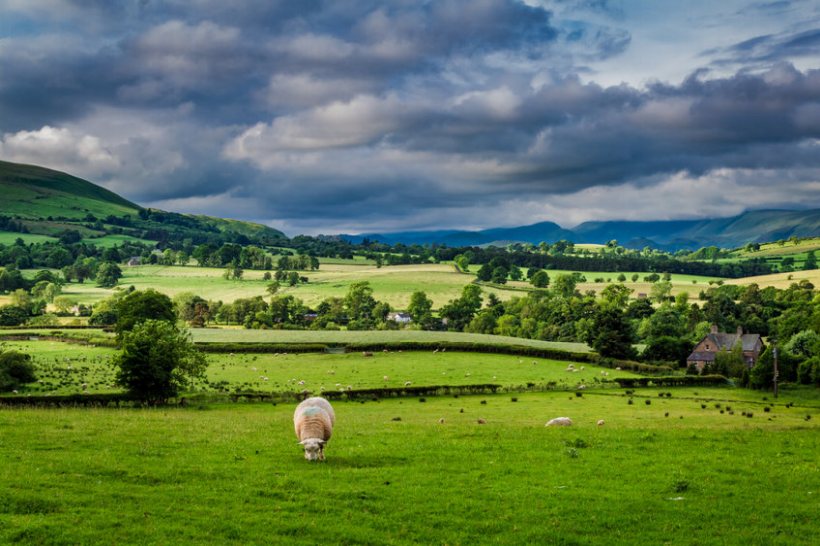
Almost £600,000 has been allocated in the Lake District as part of a national grants programme to help local farmers adapt to the UK's new farming support system.
The three-year Farming in Protected Landscapes (FiPL) programme was launched last year by the government.
In the Lake District, farmers and landowners are being offered funding for projects under the four themes: climate, nature, people and place.
The National Park Authority is now preparing for applications for the second year of funding from April 2022, with further funding available through to 2024.
One successful application is Ullswater Community Interest Company, for the creation of nature corridors in the national park.
Their project is working with local farmers to connect and improve habitats by creating a series of wildlife corridors.
As well as having a focus on nature and climate, the project wants to create an opportunity for the community to work, as much of it is done with volunteering.
Elsewhere within the national park, West Lakes Community Interest Company received funding for a ‘Farmer Led Nature Recovery’ project.
The money is helping them with scoping studies, in preparation for landscape-scale projects.
This will include engaging with farmers and commoners, collecting data on the natural environment with carbon audits and habitat surveys, and mapping and recording these.
The Fell Pony Heritage Trust has also successfully secured funding, which is dedicated to protecting the fell ponies’ traditions and supporting the hill farmers that maintain these upland herds in Cumbria.
This year FiPL funding has been able to contribute to the cost of the Trust employing a part time administrator to work on developing its activity to achieve its aims.
The Lake District's farming officer, Andrea Meanwell said the range of applications received from farmers and landowners had so far been 'fantastic'.
"There are so many great ideas out there to benefit the climate, nature, people and place in the Lake District, and our job is help local people bring them to fruition.
"We can’t wait to see the successful projects who have already received funding progress on their journey, and we’re looking forward to seeing what funding applications come in next."
Nibthwaite Grange Farm has also secured funding for the development of a new local tweed, with an aim to connect people to the history and culture of wool production in the Lake District.
They are developing 13 tweeds, aligned with the 13 valleys of the Lake District, using wool sourced from each local valley.
Funding is helping them with the first four valley tweeds of Coniston, Windermere, Ullswater and Ennerdale.
The project will also support farmers, offering them a good price for wool and 10 percent of the profit from sales.
